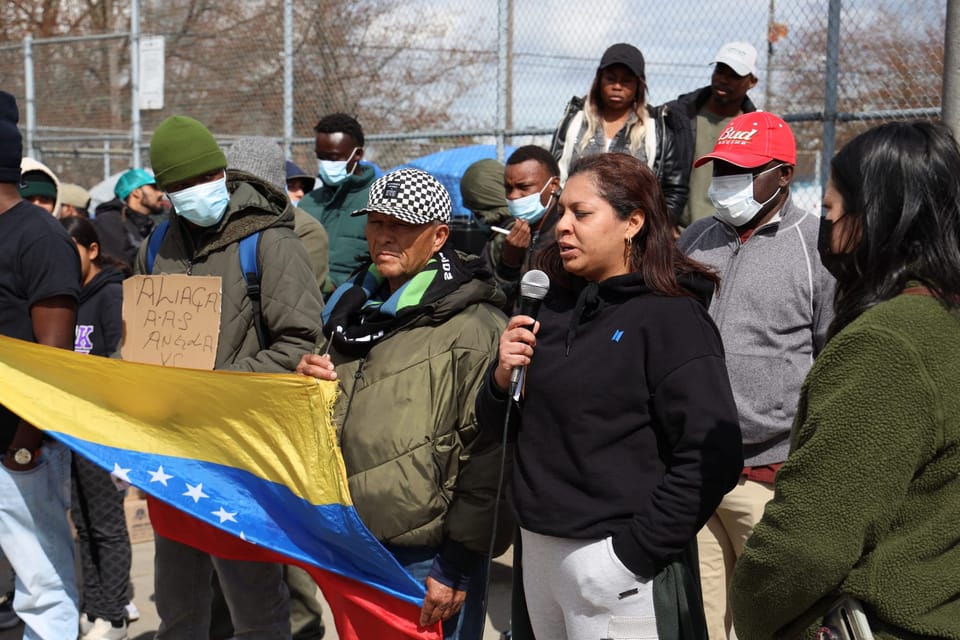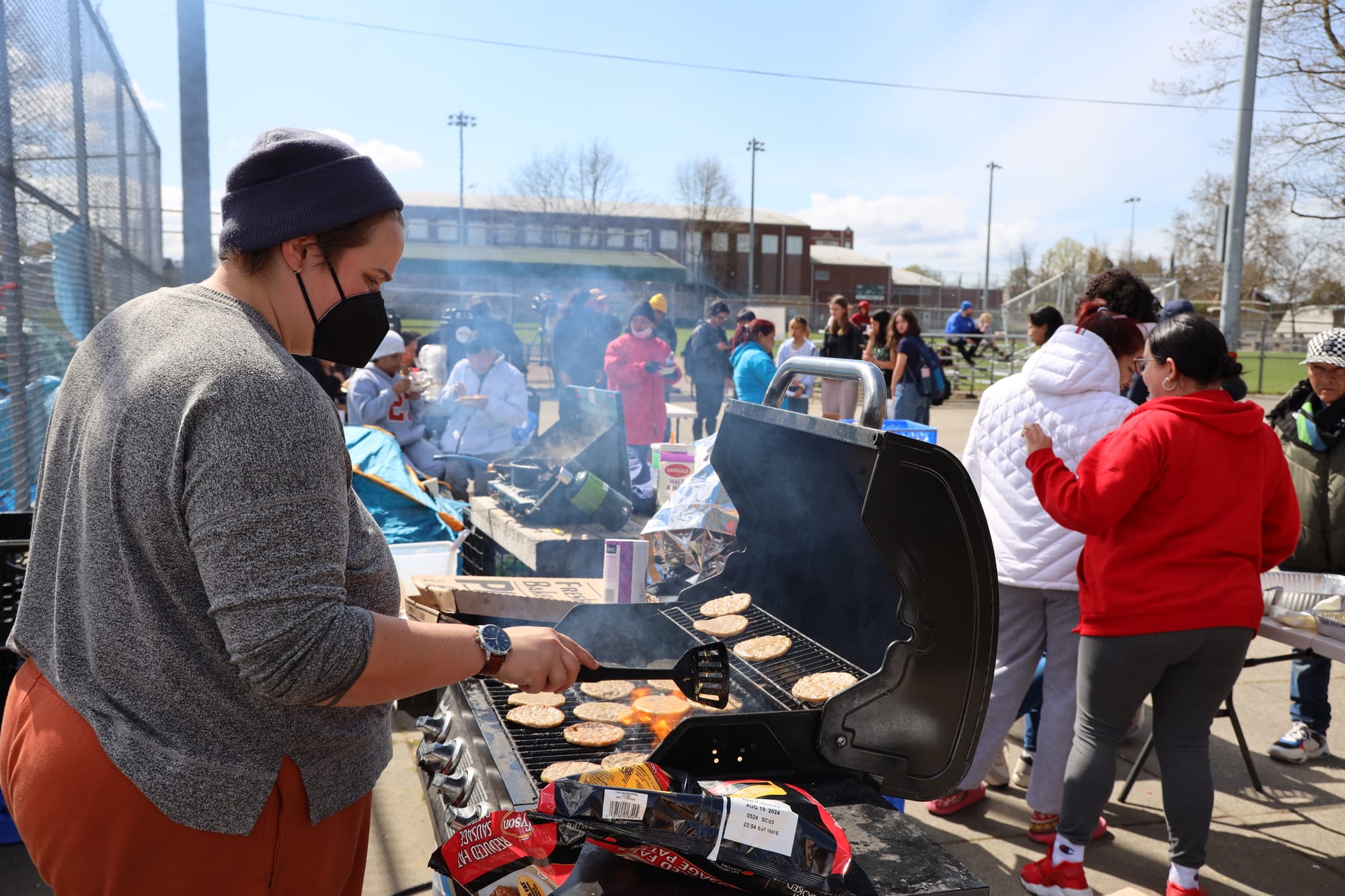Seattle asylum seekers scramble for shelter

Over the last two years, we’ve seen an influx of migrants coming to the United States seeking political asylum. Many of them are fleeing conflicts started or abetted by U.S. foreign policy decisions, such as economic sanctions and military interventions.
America’s arcane immigration system has not been able to keep up, leading to an ever-growing backlog of cases. According to the Transactional Records Access Clearinghouse (TRAC) at Syracuse University, more than 3 million people were waiting for their cases to be processed in December 2023. The federal government has also failed to provide adequate housing and shelter for asylum seekers, leaving state and local governments to figure out their own solutions.
With its reputation of taking in anyone in need, Tukwila’s Riverton Park United Methodist Church became a hub for community support to asylum seekers in the Seattle Region. Once home to a tiny village supporting a few dozen unhoused community members, the church’s grounds now host hundreds of people mainly from Venezuela, Angola and the Democratic Republic of the Congo. Rev. Jan Bolerjack, the church’s leader, says that they can no longer take in new residents.
In addition to staying at the church, many asylum seekers have also found shelter in temporary government and philanthropist funded hotel rooms. These stays have been short, often renewed for a couple of weeks at a time. Migrants formed their own organizations, such as Comunidad Sin Fronteras (CSF) and Mãos Unidas Pela Solidariedade, to advocate for long-term housing and legal support. Showing up at Seattle City Council and King County Council meetings, asylum seekers and their allies successfully won extensions to their hotel stays. However, on April 2 their luck ran out.
That day, more than 200 asylum seekers were kicked out of Kent Quality Inn after their stay expired. The eviction forced them to leave much of their belongings behind. Many went to the King County Council’s Health and Human Services Committee meeting to ask for more funding, to no avail. With few remaining options, they decided to look for a place to camp.
Later on the evening of April 2, the asylum seekers started pitching tents at the Garfield Community Center tennis court with the help of mutual aid groups. Leidys Pérez, a leader with CSF, said they decided to move there because it was a relatively safe location close to bathrooms and other amenities.
“Seeing that we did not get a response and we were already out, that we didn’t have a hotel, we had to come this way, to grab the whole family and look for a place that was a little safer,” Pérez said.
Despite the support of grassroots organizations like the International Migrants Alliance (IMA), Pérez said sleeping on an asphalt floor was a poor substitute for real housing. Many families had young children, some of whom were enrolled in the Kent School District. Soon they were joined by 14 other Central African asylum seekers who had been evicted from a vacation rental home in Renton the prior weekend.
To draw attention to their dire circumstances, CSF and IMA held a press conference outside the tennis court on April 3. Adriana Figueira, another leader with CSF, said migrants cannot successfully make it through the political asylum process without adequate housing.
“We are very hard-working people and we keep finding ways to push forward and make a living,” Figueira said through an interpreter. “But really, without having the stable housing that we’ve been asking for — of just even two or three months of some stability — it’s so hard for us to follow through with our asylum cases, with our court cases, with seeking permission to work and with completing those documents.”

That same afternoon, the asylum seekers received a donation of $50,000 that allowed them to return to the hotel for 11 days. Organizers credited grassroots organizing and media attention for mobilizing local politicians to make statements and take action. King County Councilmember Sarah Perry helped connect the private donor with the asylum seekers.
While philanthropy has helped the asylum seekers stay off the streets for now, Pérez said that it was not a sustainable, long-term solution.
In March, the Washington State Legislature allocated $32.75 million to support migrants and asylum seekers. $25 million of those funds will go directly to the state’s Office of Refugee and Immigrant Assistance, while $5 million will go to King County and $2.5 million to the city of Tukwila.
But there’s a catch — the funding will only become available on July 1, the start of the new fiscal year. This means the asylum seekers may be left looking for short -term solutions for the next three months. For Rosario Lopez, a mutual aid organizer with Super Familia, the lack of substantive policy solutions was deeply frustrating.
“We have been making calls, we have been sending emails,” said Rosario Lopez, a mutual aid organizer who has been supporting the asylum seekers. “We have been requesting meetings with our city officials and no one is listening. No one is helping.”

Member discussion